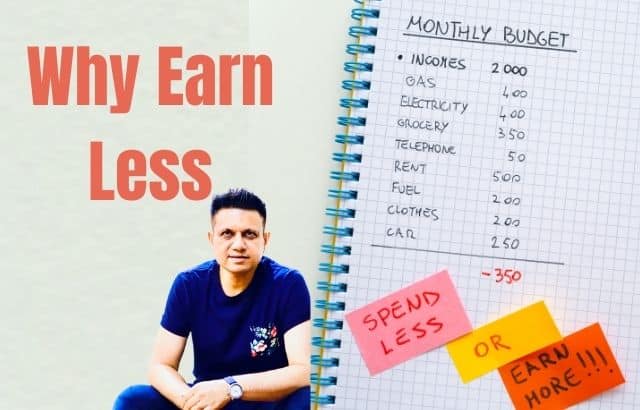In a world driven by ambition and aspiration, it’s surprising how many people settle for less than their true earning potential. The comfort of a stable job or a steady income can often lead to complacency, preventing individuals from exploring opportunities that could help them earn more. In this blog post, we will delve into the reasons why many people choose to earn less when they have the potential to earn more, and how you can break free from this mindset to maximize your earning potential.
Table of Contents
Fear of Change
One of the primary reasons people earn less than their potential is the fear of change. Leaving a stable job or pursuing a new career path can be intimidating. The unknown can be paralyzing, leading individuals to stay in their comfort zones even if they are not satisfied with their current earnings. To overcome this fear, it’s essential to recognize that change is a natural part of life and often a prerequisite for growth.
Lack of Confidence
Many people underestimate their own abilities and skills, leading them to believe they are not capable of earning more. This lack of confidence can be a significant barrier to realizing one’s full earning potential. Building self-confidence and recognizing your strengths is crucial in breaking free from this mindset. Seek out opportunities for skill development and personal growth to boost your confidence in your abilities.
Settling for Mediocrity
Complacency is another factor that keeps individuals from earning more. When people become comfortable with their current lifestyle, they may be unwilling to put in the extra effort required to increase their income. It’s important to understand that settling for mediocrity can limit your financial growth. Embrace a mindset of continuous improvement and strive for excellence in your career to unlock your full earning potential.
Lack of Financial Education
A lack of financial education can also contribute to earning less than one’s potential. Many people are not well-informed about investment strategies, savings, and wealth-building opportunities. Without this knowledge, they may miss out on chances to grow their wealth and increase their income. Investing time in financial education can be a wise investment in itself, as it can help you make informed decisions about your finances.
Resistance to Risk
Earning more often involves taking calculated risks. Some people are risk-averse and prefer the stability of their current income, even if it means missing out on potentially lucrative opportunities. While it’s important to assess risks carefully, avoiding them altogether can hinder your financial growth. Learning to embrace calculated risks can open doors to new income streams and financial opportunities.
Failure to Seek Opportunities
Earning more requires actively seeking out opportunities for growth, whether in your current job or through entrepreneurial ventures. Some individuals simply fail to explore these opportunities, believing that they will come their way naturally. However, in today’s competitive world, success often requires proactively seeking out opportunities and networking with like-minded individuals.
Conclusion
Earning less than your potential is a choice that many individuals unwittingly make due to fear, lack of confidence, complacency, financial ignorance, risk aversion, or a failure to seek opportunities. However, it’s important to recognize that you have the power to change this mindset and unlock your full earning potential. By overcoming these barriers and embracing change, self-improvement, and calculated risks, you can open doors to greater financial success and satisfaction. Don’t settle for less when you have the potential to earn more – take control of your financial future today.






























